On April 27, 1927, Coretta Scott King was born.
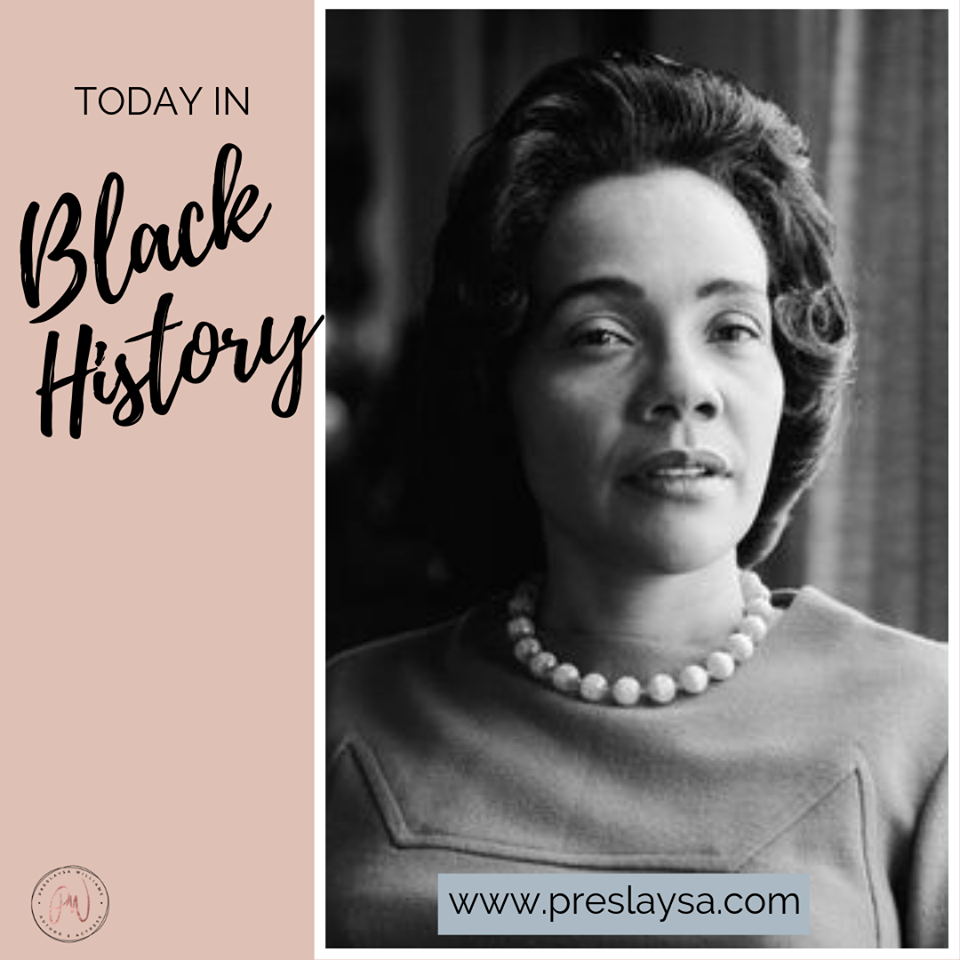
If you’d like to see all of my Black History facts posts, be sure to follow me on Pinterest.
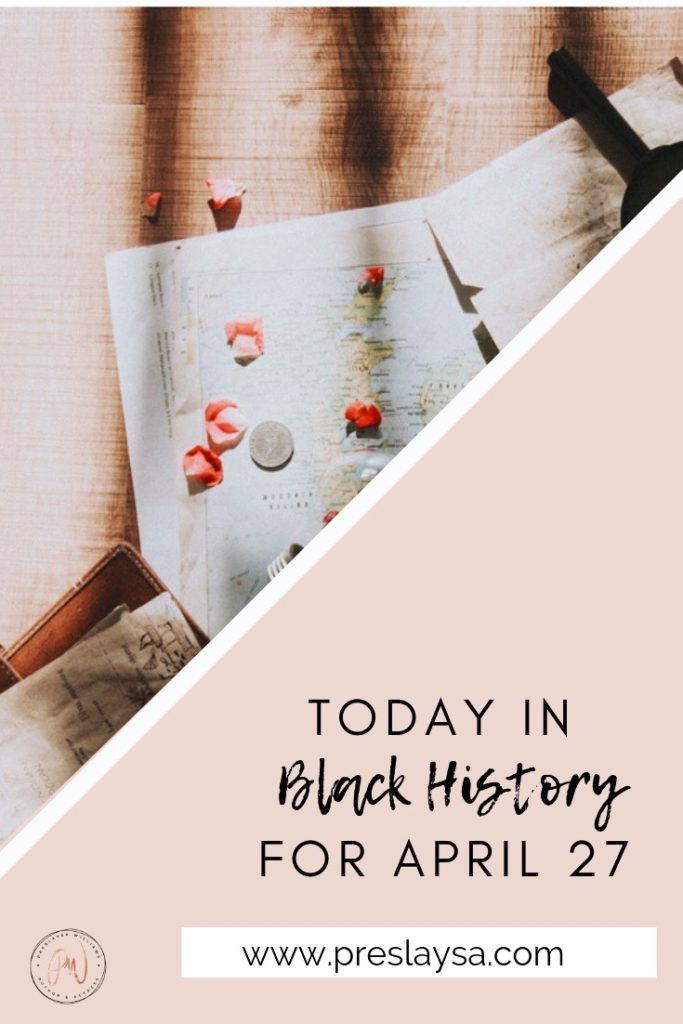
Official Site of Preslaysa Edwards - Preslaysa Williams
Author. Actress. Blasian Gal.
On April 27, 1927, Coretta Scott King was born.

If you’d like to see all of my Black History facts posts, be sure to follow me on Pinterest.

Today in #BlackHistory– on January 2, 1836 William Lloyd Garrison began publishing The Liberator, an abolitionist newspaper.
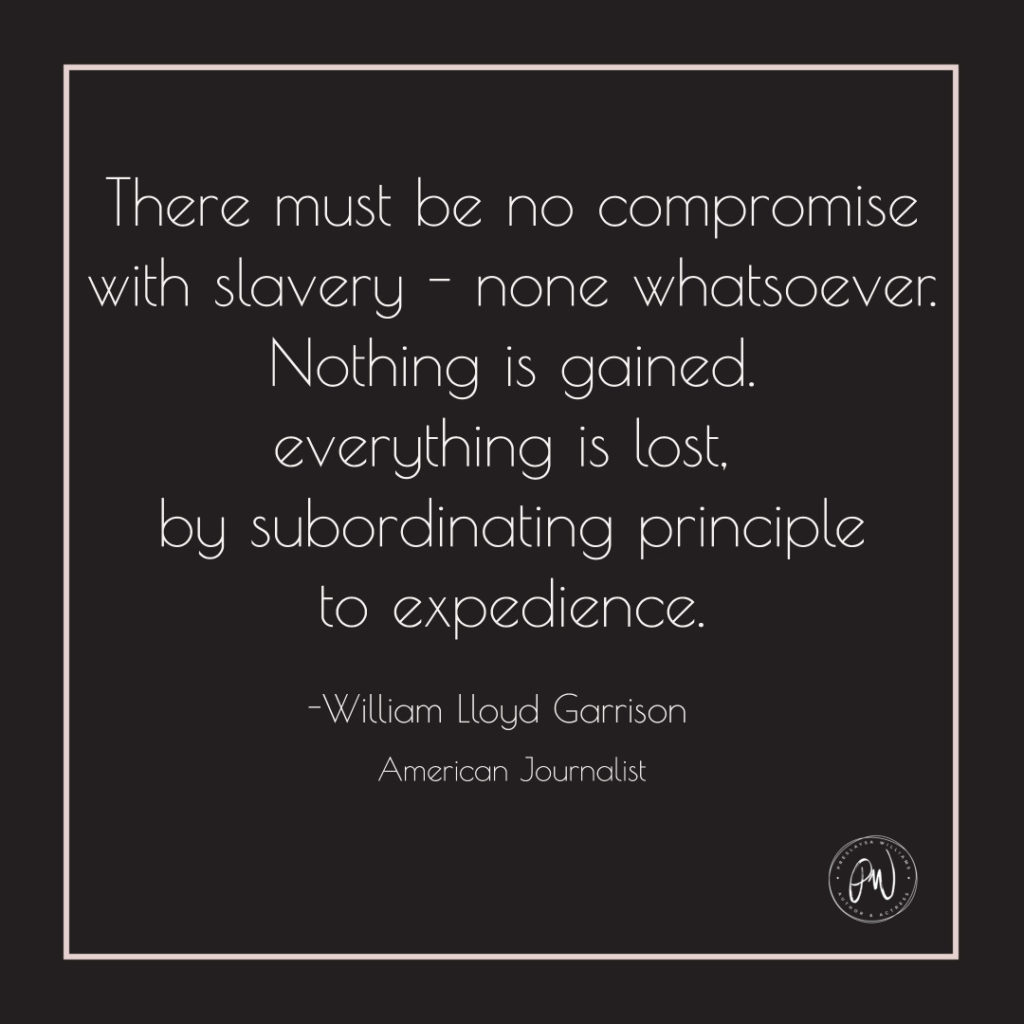
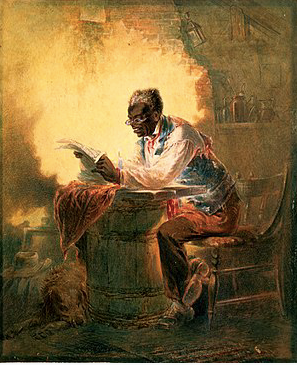
Today in #BlackHistory– On January 1 ,1863, the Emancipation Proclamation was issued, abolishing slavery.
Photo: Henry Lewis Stephens, untitled (c. 1863) of a Black man reading a newspaper w/ headline “Presidential Proclamation/Slavery”
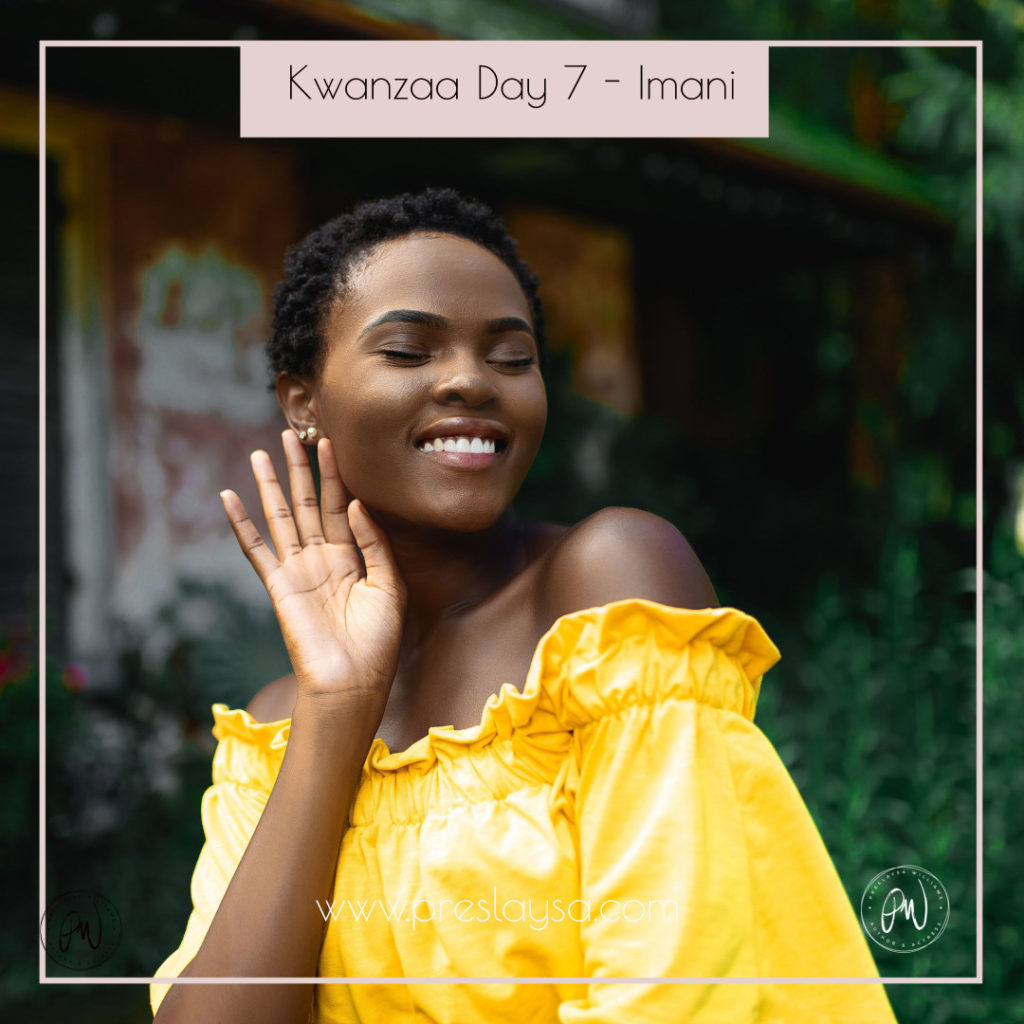
It’s the final day of Kwanzaa! Today we celebrate the value of Imani which means Faith in Swahili. In the framework of Kwanzaa, faith means “to celebrate with all of our heart in our people, our teachers, our leaders, and the righteousness and victory of our struggle.”
Whew. That’s a powerful definition of faith, especially the “righteousness and victory of our struggle” part. Let’s break it down a bit.
Last night, on New Year’s Eve, I experienced a powerful sharpening of the righteousness and victory of the collective historical struggle of Black people. I also experienced a powerful sharpening of my own journey as an Afro-Filipina woman.
The struggle came in the form of people who I had thought were supportive of my artistic endeavors, my efforts to center and celebrate women of color, my efforts to champion own voices art & literature. However, the people I had trusted only supported me up to a point.
The point where they got off the track was when I started flourishing in my Nia or purpose. As long as I was “in need” or “broken”, they were okay in playing the savior role.
This is an aspect of the journey that people don’t talk about too much. Some people are ready to “help” you when your “in need”, but they aren’t ready to stand with you and celebrate you when you’re flourishing.
However, Imani or Faith is what keeps us moving forward despite these setbacks. Imani enables us to keep championing our people, our teachers, our history, our leaders, and our journey as people of the Black diaspora.
So today, in the Spirit of Faith, we light the final green candle.
Happy New Year and Happy Kwanzaa. I wish you a blessed, victorious, and empowering 2019. Ashe and Amen.
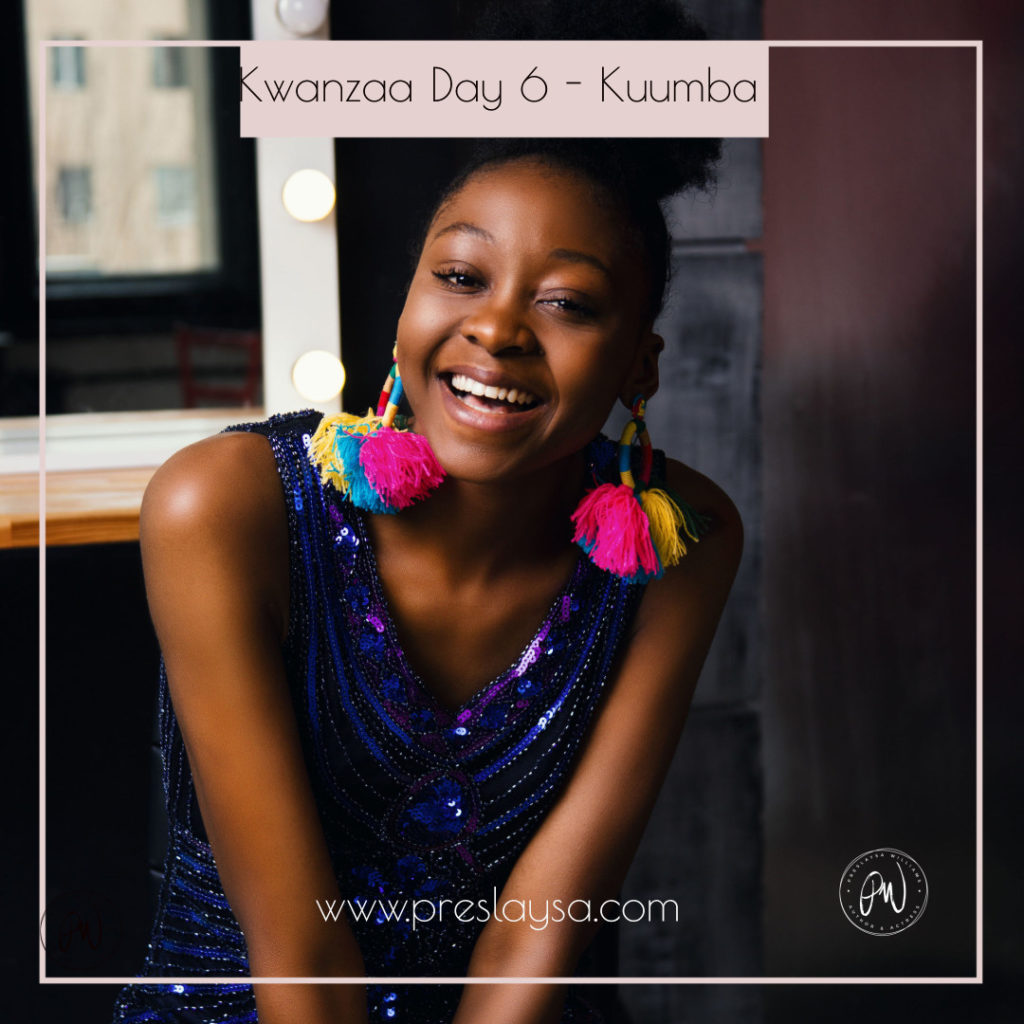
“Habari gani?” or “What’s the news?”
“Today’s theme is Kuumba.”
Kuumba means creativity in Swahili. When we commit to creativity in this sense, we intend “to always do as much as we can, in the way we can, in order to leave our community more beneficial than we inherited it.”
That’s a beautiful purpose.
Last night I worked on my vision board for 2019. It involved a LOT of creativity. I started around 10pm and I finished it at 6:30am. (So I’m operating on little sleep!) But when I finished, I felt exhilarated and ready to meet 2019.
One thing that helped me craft this year’s vision board was thinking about the long term. What kind of legacy do I want to leave behind? What would I have to do today to meet that legacy? Who would I have to be today to meet that long term vision? So I inadvertently operated in kuumba when I was putting together my vision board.
(As a side note: I plan to write a series of posts in January about how to put together a vision board.)
Kuumba doesn’t have to take the form of a vision board, however. It can be creatively meeting the needs of someone in your community. Or finding a creative way to facilitate the healing of a broken identity.
Our kuumba doesn’t just heal ourselves. It heals others.
For this we light the final red candle.
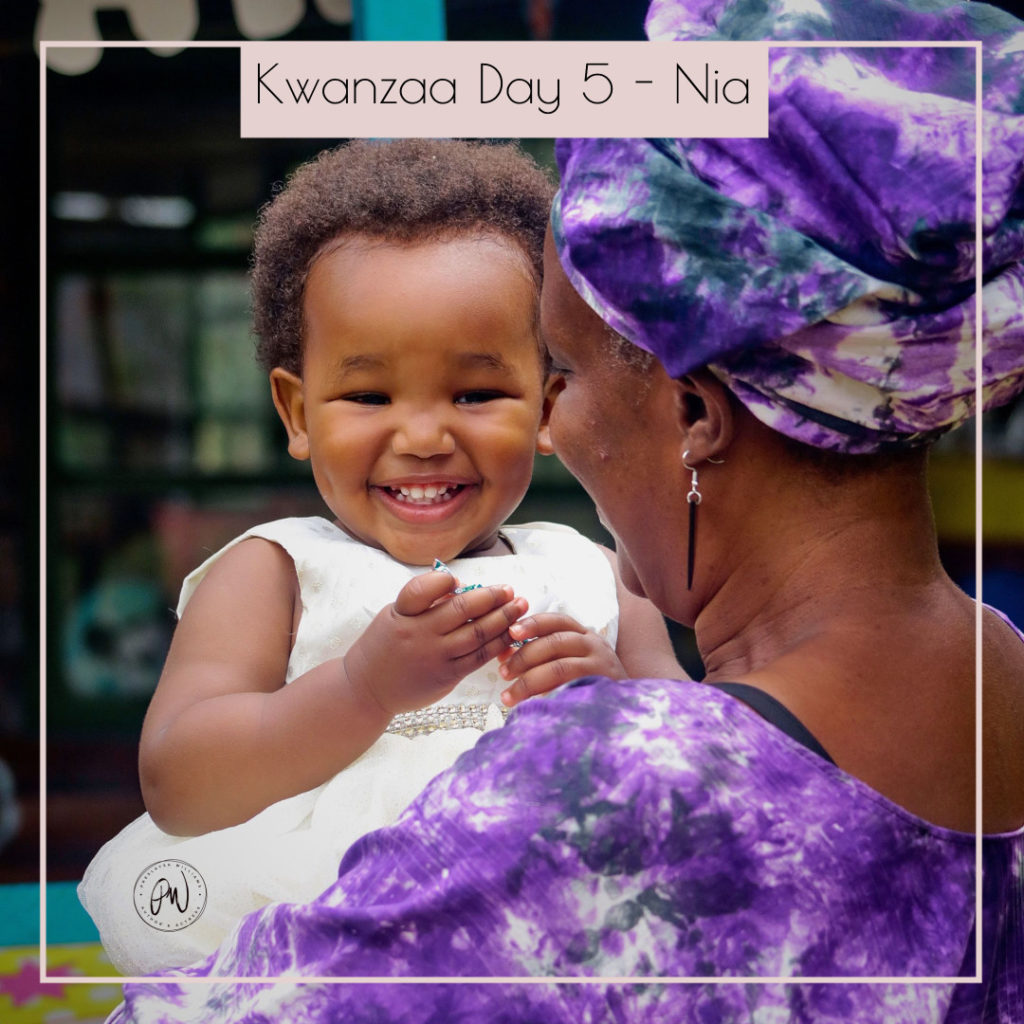
Happy Day 5 of Kwanzaa! Today we celebrate the value of Nia or Purpose. When we commit to purpose, we are committing to: “glorious duty of restoring our families, our neighborhoods, and our people to their historical greatness”
We focus our intentions today in doing all that we can individually and as a community to create the healthy conditions to enable those in our families and our community to grow, thrive, and prosper.
As we become clear in our individual, divine purpose, we start to effect restoration and healthy transformation in those around us.
As we bring about restoration and healthy transformation, we grow the community and heal generational legacies in our own family tree.
As we heal generations, we also heal the ancestors, those who look upon us from the bannister of heaven and cheer us on in our life purpose.
For this, we light a green candle.

Happy fourth day of Kwanzaa!
Today we celebrate the value of Ujamaa which means cooperative economics in Swahili. Cooperative economics means setting the intention to “build our own businesses, control the economics in our community, and share in all its work and wealth.”
Some of our African ancestors were bought and sold as commodities in the slave trade, and so they were bereft of economic power and autonomy. When we practice cooperative economics, we shift the generational tide of economic powerlessness for ourselves and for our descendants.
For this reason, we light another red candle.

“Habari gani?” or “What’s the news?”
“Ujima is the news for today.”
On this third day of Kwanzaa, we celebrate the value of Ujima. This word is Swahili for collective work and responsibility. It means to: “build and maintain our community together to make our brother’s and sister’s problems, our problems, and to solve them together.”
Growing up, I was taught that success and failure exist in a vacuum. I was taught that I am the sole cause of whether I succeed or fail in life.
I was taught this because our culture champions the pull yourself up by the bootstraps philosophy, the myth that we can be anything and do anything as long as we (and we alone) work hard and persevere through hardships.
The truth is that, from infancy, our community and the people around us contribute or detract from our growth. As a result of the transatlantic slave trade, many people of the Black diaspora have historically been been separated from their families and communities of origin, and so it’s important that we build one another up and help one another in their weaknesses.
In the book of Genesis, Cain asked God: “Am I my brother’s keeper?”
The answer is: “Yes, you are.”
For this, we light a green candle on the kinara.